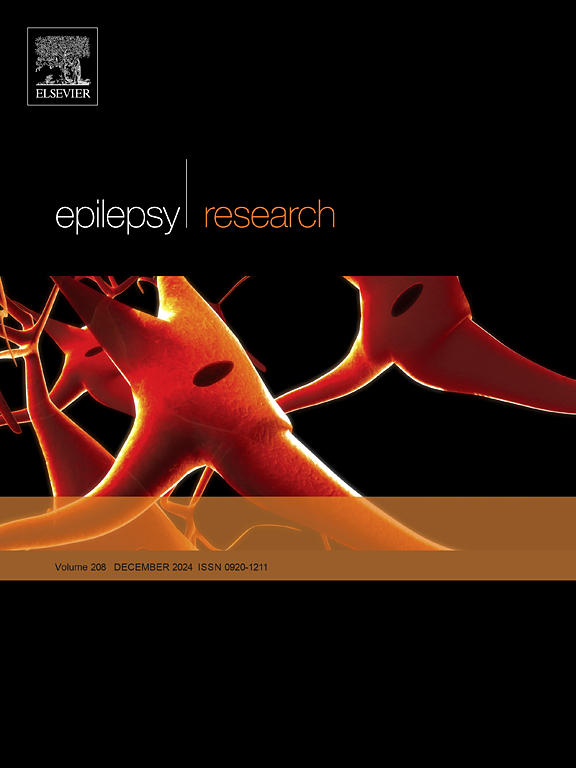Treatment modifications of antiseizure medications in children due to adverse drug reactions: The parents’ perspective
IF 2
4区 医学
Q3 CLINICAL NEUROLOGY
引用次数: 0
Abstract
Background
Adverse drug reactions (ADRs) occur frequently in the treatment with antiseizure medication (ASM). We investigated the influence of experienced ADRs on desired or actual treatment modifications in paediatric patients from the parents’ perspective.
Methods
We interviewed 104 parents of children with an epilepsy diagnosis in routine paediatric care at a German university hospital. The questionnaire comprised questions about current and previous experiences with ASM regarding ADRs leading to desired or actual treatment modifications.
Results
Of 94 parents of children with current ASM, 11/94 (12 %) desired treatment modifications because of ADRs. Of 66 parents of children with previous ASM treatment, 51/66 (77 %) reported a total of 72 actual ADR-related modifications in the past. The most frequently mentioned ADRs leading to desired or actual treatment modifications were fatigue (current: 7/94 [7 %]; previous: 23/72 [32 %]), behavioural changes (current: 6/94 [6 %]; previous: 28/72 [39 %]), and negative changes in cognitive processes (current: 3/94 [3 %]; previous: 12/72 [17 %]). In total, parents attributed ADR-related desired or actual treatment modifications to 14 different ASMs. Behavioural changes leading to desired or actual modifications were mentioned for 10/14 (71 %) ASMs, fatigue for 9/14 (64 %) ASMs, and negative changes in cognitive processes for 8/14 (57 %) ASMs.
Conclusion
One-in-ten parents desired to modify current ASM treatment due to ADRs, and almost two thirds reported actual ADR-related modifications of previous ASMs. As the same ADRs were reported for different ASMs, those ADRs may not be preventable through ASM variation. Thus, coping strategies are needed, particularly for the occurrence of common neurological and psychiatric ADRs.
儿童抗癫痫药物治疗因药物不良反应的改变:家长的观点
背景:抗癫痫药物治疗中经常发生药物不良反应(adr)。我们从父母的角度调查了经历过的不良反应对儿科患者期望或实际治疗修改的影响。方法对104例在德国某大学附属医院儿科常规护理中被诊断为癫痫患儿的家长进行访谈。问卷包括关于当前和以前ASM的经验,关于不良反应导致期望的或实际的治疗修改。结果在94名ASM患儿的家长中,11/94(12 %)因不良反应要求修改治疗方案。在66名既往接受过ASM治疗的儿童家长中,51/66(77 %)报告了过去总共72次实际的adr相关改变。导致预期或实际治疗改变的最常提到的不良反应是疲劳(目前:7/94[7 %];先前:23/72[32 %]),行为改变(当前:6/94[6 %];既往:28/72[39 %]),认知过程的负性变化(当前:3/94[3 %];上一篇:12/72[17 %])。总的来说,父母将与不良反应相关的期望或实际治疗变化归因于14种不同的asm。10/14(71 %)asm的行为改变导致预期的或实际的改变,9/14(64 %)asm的疲劳,8/14(57 %)asm的认知过程的负面变化。结论:1 / 10的家长由于不良反应而希望修改目前的ASM治疗,近2 / 3的家长报告了与不良反应相关的既往ASM的实际修改。由于不同ASM报告了相同的adr,这些adr可能无法通过ASM的变化来预防。因此,应对策略是必要的,特别是对于常见的神经和精神不良反应的发生。
本文章由计算机程序翻译,如有差异,请以英文原文为准。
求助全文
约1分钟内获得全文
求助全文
来源期刊

Epilepsy Research
医学-临床神经学
CiteScore
0.10
自引率
4.50%
发文量
143
审稿时长
62 days
期刊介绍:
Epilepsy Research provides for publication of high quality articles in both basic and clinical epilepsy research, with a special emphasis on translational research that ultimately relates to epilepsy as a human condition. The journal is intended to provide a forum for reporting the best and most rigorous epilepsy research from all disciplines ranging from biophysics and molecular biology to epidemiological and psychosocial research. As such the journal will publish original papers relevant to epilepsy from any scientific discipline and also studies of a multidisciplinary nature. Clinical and experimental research papers adopting fresh conceptual approaches to the study of epilepsy and its treatment are encouraged. The overriding criteria for publication are novelty, significant clinical or experimental relevance, and interest to a multidisciplinary audience in the broad arena of epilepsy. Review articles focused on any topic of epilepsy research will also be considered, but only if they present an exceptionally clear synthesis of current knowledge and future directions of a research area, based on a critical assessment of the available data or on hypotheses that are likely to stimulate more critical thinking and further advances in an area of epilepsy research.
 求助内容:
求助内容: 应助结果提醒方式:
应助结果提醒方式:


